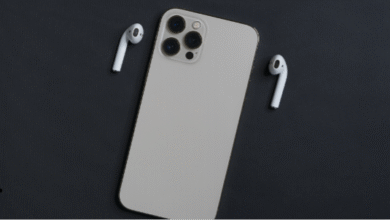Welcome to the world of IoT, where machines are interconnected and data is king! In today’s fast-paced digital era, businesses are constantly seeking innovative ways to enhance their operations. And that’s where IoT SIM cards come into play – revolutionizing the game by driving cost efficiency like never before. So buckle up as we dive into the vast realm of IoT deployments and discover how these tiny wonders can unlock a world of success for your business. Get ready to unleash the full potential of connectivity with us in this exciting blog post!
Introduction to IoT and its Growth
The Internet of Things, or IoT, is a rapidly growing network of interconnected devices that are able to communicate with each other and exchange data. These devices can range from household appliances like refrigerators and thermostats to industrial equipment such as sensors and machinery. The idea behind IoT is to create a system where everyday objects can collect and share data without requiring human intervention.
The concept of IoT has been around for decades, but it wasn’t until recent years that it truly began to take off. With the widespread availability of internet access and advancements in technology, the number of connected devices has exploded. In fact, experts predict that by 2025, there will be over 75 billion connected devices worldwide.
One major factor driving the growth of IoT is the increasing demand for smart homes and cities. Consumers are drawn to the convenience and efficiency of being able to control their household appliances remotely through their smartphones or voice assistants. Similarly, cities are turning towards smart solutions such as traffic management systems and energy efficient street lighting.
Another significant driver for IoT growth is the rise of Industry 4.0 – the fourth industrial revolution characterized by automation and data exchange in manufacturing technologies. Businesses are leveraging IoT technology to improve processes, reduce costs, increase productivity, and ultimately drive success.
Furthermore, the ongoing COVID-19 pandemic has also accelerated the adoption of IoT as businesses looked for ways to operate remotely while maintaining efficiency. From remote monitoring tools for healthcare facilities to contactless delivery options for businesses, IoT has played a crucial role in helping industries adapt to the changing landscape.
In addition to these factors, the decreasing costs of sensors and other IoT components have also contributed to its rapid growth. As technology continues to advance, it is expected that the cost of IoT devices will continue to decrease, making it more accessible for businesses and consumers alike.
Overall, the future of IoT looks promising with the potential to transform industries and improve quality of life for individuals. However, with this growth also comes challenges such as security concerns and data privacy issues that will need to be addressed in order for IoT to reach its full potential.
Understanding IoT SIM Cards
IoT SIM cards, also known as Internet of Things SIM cards, play a crucial role in the success of IoT deployments. Understanding the basics of IoT SIM cards is essential for businesses to leverage their full potential and drive cost efficiency in their IoT projects.
What are IoT SIM Cards?
An IoT SIM card is a specialized type of subscriber identity module (SIM) card that is designed specifically for use in connected devices and applications. It enables these devices to connect to cellular networks and transfer data over the internet without requiring manual intervention or human-to-machine interaction.
How do they work?
Like traditional SIM cards used in mobile phones, an IoT SIM card contains unique identification information that allows it to interact with a cellular network provider’s infrastructure. This information includes an International Mobile Subscriber Identity (IMSI), which identifies the user’s home network, and a Mobile Station International Subscriber Directory Number (MSISDN), which identifies the phone number associated with the device.
However, unlike traditional SIM cards, IoT SIM cards have additional features and capabilities that make them suitable for use in connected devices. These include lower power consumption, higher durability, support for multiple network technologies (2G/3G/4G/LTE), and remote management capabilities.
Types of IoT SIM Cards
There are two main types of IoT SIM cards – traditional physical or embedded SIMs (eSIMs). Traditional physical SIMs are similar to those used in mobile phones and need to be manually inserted into the device. On the other hand, eSIMs are embedded directly into the device and can be remotely managed, activated, and updated over-the-air.
Benefits of IoT SIM Cards
- Cost Efficiency: IoT SIM cards offer cost efficiency by allowing businesses to choose from a wide range of data plans that suit their specific needs. They eliminate the need for expensive roaming charges and provide greater control over data usage.
- Flexibility: With IoT SIM cards, businesses have the flexibility to switch between different network providers or technologies without needing to change physical SIM cards. This makes it easier to manage connectivity across multiple devices and locations.
- Remote Management: eSIMs allow for remote management, making it easier to activate, deactivate, and update devices without physically accessing them. This reduces operational costs and improves efficiency.
- Global Coverage: IoT SIM cards provide global coverage with support for multiple network technologies, ensuring reliable connectivity even in remote areas.
- Security: IoT SIM cards offer secure communication by using encryption protocols to protect data transmission between devices and networks.
Understanding the basics of IoT SIM cards is crucial for businesses looking to deploy successful IoT projects. With their unique features and capabilities, these specialized SIM cards enable seamless connectivity and data transfer in connected devices, driving cost efficiency and improving business operations.
Best Practices for Choosing the Right IoT SIM Card Provider
When it comes to successfully deploying an IoT solution, choosing the right SIM card provider is a crucial step. With numerous providers in the market, it can be overwhelming to determine which one will best meet your needs. To help you make an informed decision, here are some best practices to consider when choosing an IoT SIM card provider.
1. Understand Your Requirements:
The first step in choosing the right IoT SIM card provider is understanding your specific requirements. This includes factors such as data usage, network coverage, and connectivity options. By clearly defining your needs, you can narrow down the list of potential providers and find one that offers the right features for your business.
2. Consider Network Coverage:
One of the most critical factors to consider when choosing an IoT SIM card provider is their network coverage. The SIM card must be able to connect to a reliable and robust network in all locations where your devices will be deployed. It’s essential to check if the provider has partnerships with multiple network operators or if they have their own global network infrastructure.
3. Evaluate Data Plans:
Another important consideration is the data plans offered by different providers. It’s essential to choose a plan that fits your data usage requirements while also being cost-effective in the long run. Look for providers that offer flexible plans such as pay-as-you-go or tiered pricing models based on data consumption.
4. Security Features:
IoT devices often handle sensitive information and require secure communication channels between them and servers or other devices within the same ecosystem. When selecting an IoT SIM card provider, you must ensure that they offer sufficient security features such as encryption and authentication protocols to protect your data from potential threats.
5. Scalability:
Your business needs may change over time, and your IoT solution must be able to scale accordingly. Therefore, it’s essential to choose an IoT SIM card provider that offers scalability options. This could include the ability to add or remove devices easily, upgrade data plans, or expand network coverage.
6. Reliability and Support:
The reliability of the network infrastructure is crucial for the smooth functioning of your IoT solution. It’s essential to choose a provider with a track record of delivering consistent connectivity and minimal downtime. Additionally, consider their customer support services in case you encounter any issues or require technical assistance.
7. Pricing and Billing:
Pricing is another key factor when choosing an IoT SIM card provider. While affordability is important, it’s also crucial to carefully review the pricing structure to avoid any hidden costs or unexpected charges. Ensure that the billing system is transparent and easy to understand.
8. Additional Services:
Some IoT SIM card providers may offer additional services such as device management platforms, real-time monitoring tools, or analytics dashboards. These can provide valuable insights into your connected devices’ performance and help you make informed business decisions. Consider these additional services when evaluating different providers.
Choosing the right IoT SIM card provider requires careful consideration of your specific requirements and thorough research into the various options available. By following these best practices, you can find a reliable and cost-effective provider that can support your IoT solution’s success.
Conclusion
In conclusion, it is evident that IoT SIM cards play a crucial role in driving cost efficiency and success in IoT deployments. By providing secure connectivity, seamless roaming capabilities, and low-cost data plans, these specialized SIM cards allow businesses to fully leverage the potential of their connected devices. With the ever-growing adoption of IoT technology, investing in reliable and efficient SIM cards is essential for any organization looking to thrive in this rapidly evolving landscape. So don’t wait any longer – unleash the full potential of your IoT deployment with high-quality and customizable IoT SIM cards today!





